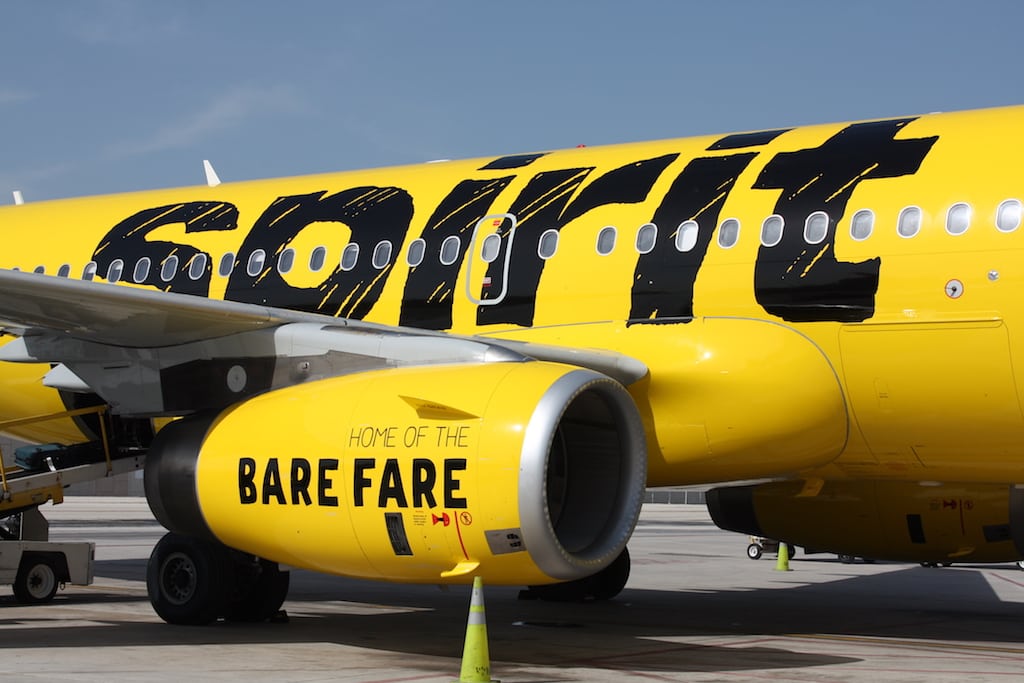Skift Take
It was not clear three years ago whether Spirit could make it long term. It ran a shoddy operation, and it had alienated many of its customers. But Spirit is back, and it's making good returns for shareholders.
When the largest U.S. airlines devised no-frills basic economy fares several years ago, they said it was to stop losing customers to ultra-low-cost carriers, which sell cheap base fares but charge extra for nearly everything else.
On recent earnings calls, major U.S airline executives have said the strategy is working, not only against ultra-low-cost carriers, but also as a hedge against higher fuel prices. By using basic economy fares, American Airlines, Delta Air Lines and United Airlines have been able increase prices even on routes where discounters don’t compete, forcing customers to pay an extra $25 or $30 for what used to be the standard economy class experience.
But what has been beneficial for the majors hasn’t been much of an issue for Spirit Airlines, one of two U.S. ultra-low-cost-carriers that competes directly with legacy airlines. Despite basic economy fares, Spirit is thriving, growing its margin, unit revenue and net income in the third quarter, despite paying significantly more for fuel.
“We don’t really care what they are doing,” Spirit CEO Robert Fornaro said Oct. 25 on an earnings conference call. “It’s just the marketplace adjusting and adapting. The key thing is, ultimately, how many seats do you sell at a certain price?”
The airline reported third-quarter net income of $97.5 million, with a pre-tax margin of 14.2 percent. It had further good news for the full year, predicting it would grown unit revenue by roughly 6 percent.
Investors have been so happy that the stock traded at its 52-week high after the earnings release.
Different Way Of Managing Revenue
In essence, Fornaro said full-service airlines were already competing with Spirit before basic economy, with most setting aside a certain number of seats to sell at the lowest fares.
They’re still doing that, but with basic economy, the attributes of those fares have changed, so customers get less for the price. Still, full-service airlines are probably still setting aside roughly the same number of seats for their most frugal customers.
“This is all tied to how people want to manage their revenues,” he said.
Spirit prefers to manage much of revenue not through base fare, as major airlines do, but through ancillary fees. And since full-service airlines only use basic economy to compete on base fare, much of Spirit’s revenue has not been affected by the product.
For the first nine months have this year, Spirit’s ticket revenues have only grown by 1.1 percent to $57.36 per passenger flight segment. But non-ticket revenues have increased 4 percent to $54.74, and that piece is insulated from competition.
“We’re very comfortable with the direction of our earnings,” Fornaro said. “Some of it is tied to what the industry does, but well more than half is tied to things that we’re doing, and obviously, as you know, we’re pretty comfortable with our ancillary structure, which doesn’t fluctuate with industry activities.”
One analyst asked whether Spirit’s calculation has changed now that the industry appears to be loosening restrictions tied to basic economy tickets. While Delta Air Lines, the first airline to create the product, never barred passengers from bringing large carry-on bags, American Airlines and United Airlines did, saying it made sense, since Spirit and Frontier Airlines both charge for carry-ons.
But this summer, American reversed its restriction, and though United still has the policy, Spirit’s competitors appear to be moving in another direction. Both JetBlue Airways and Alaska Airlines, which plan to implement basic economy soon, do not plan punitive carry-on bag measures.
Matt Klein, Spirit’s chief commercial officer, said the industry’s bag changes may help his airline, because as basic economy fares become more generous — and less differentiated from regular economy fares — full-service airlines may want to sell fewer of them.
“Our overall statement in the past still holds, that we expect all these products to be neutral to slightly beneficial to us because anything that helps us segment is beneficial,” Klein said. “And then, at the end of the day, if there’s a line that’s getting blurred on that, then our competitors may have to sell even less of those price points in order to maintain what they see as important segmentation.”
The Daily Newsletter
Our daily coverage of the global travel industry. Written by editors and analysts from across Skift’s brands.
Have a confidential tip for Skift? Get in touch
Tags: airline innovation, spirit airlines, ultra low-cost carriers
Photo credit: Spirit makes so much of its revenue from ancillary sales that it is not as affected by basic economy fares as travelers may think. Pictured is one of the airline's Airbus A319s. Spirit Airlines
